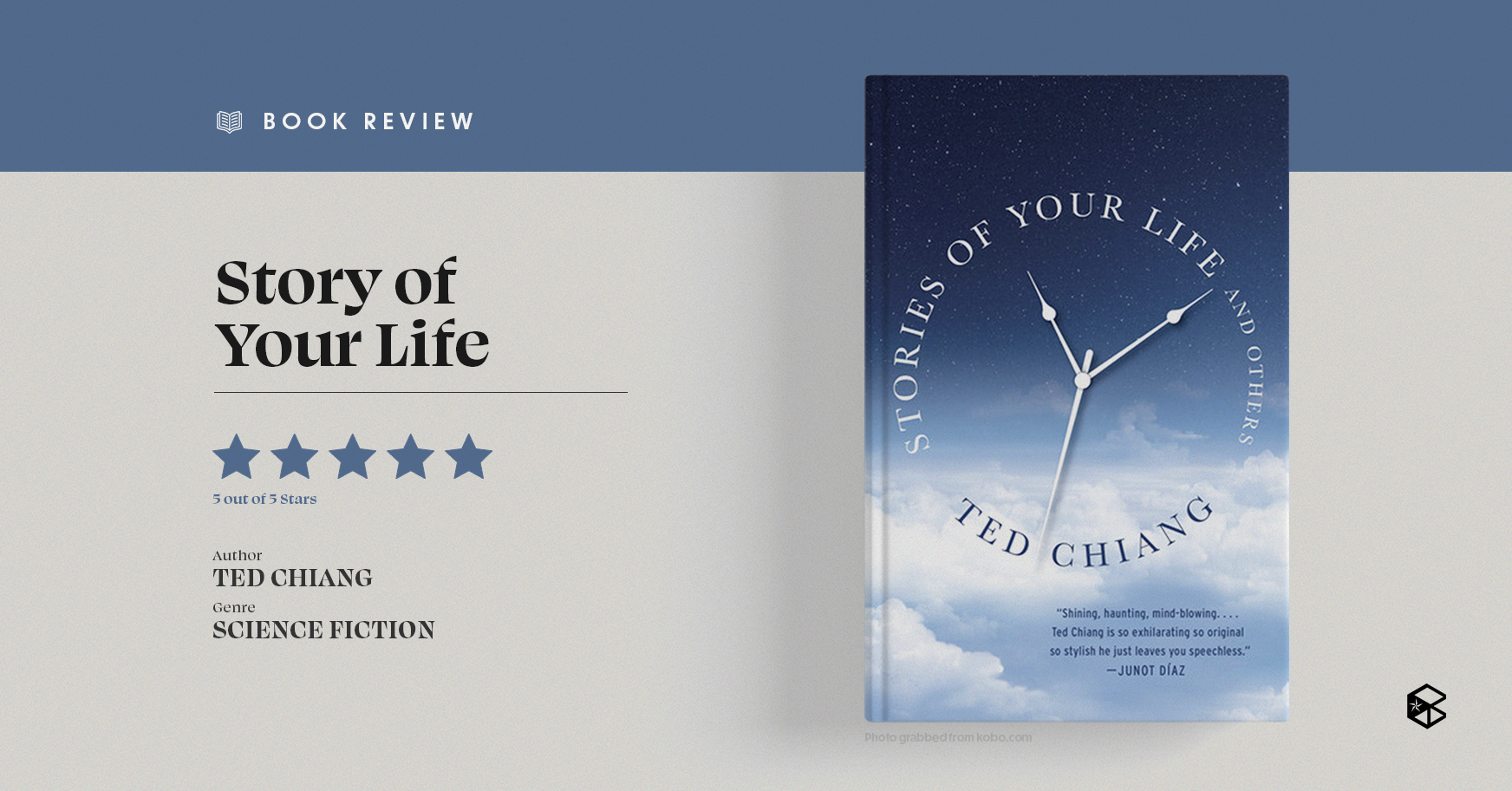Title: Story of Your Life
Author: Ted Chiang
Genre: Science Fiction
Rating: 5/5
If there was a window in the human heart that one could look through and in it find outer space, they would know what it would be like to read Ted Chiang’s Story of Your Life—fate and love at the heart of a sudden alien visitation.
Chiang’s renowned work of soulful science fiction found its beginning in the 1980s—his high school years, when he started submitting his stories to magazines.
One of his stories would later be adapted into a film in 2016—Arrival was based on Story of Your Life, a heart-rending narrative on the nature of time and language. It is part of the collection of novellas in Chiang’s book, Stories of Your Life and Others.
Written through the perspective of Dr. Louise Banks, an esteemed linguistics professor, and addressed to her future daughter, the story follows the sudden arrival of 112 spacecrafts in areas all over the world, the role of language in the perception of time, purpose, and memories of the future.
No beginning nor end
Tasked to figure out the purpose of the visitation of this somewhat placid, intelligent species called heptapods, Louise adopts their language and discovers that it is truly unlike human writing systems.
Their writing is defined by how they combine their characters—not by the cadence of phonetics, nor the subject-predicate structure of our sentences, but by intricate designs that do not follow any linear fashion. Louise compares their complexity to a mandala.
Imagine a true language where cause and effect are interchangeable, where things like the past, future, and free will do not mean as much as humans have made it so. This is what is astonishing about Chiang’s writing—he is able to depict this seemingly inconceivable way of perceiving life, where beings already know events before they happen, thus living by an understanding that all happenings are determined by forces outside of will.
I remember when we will be.
As Louise communicates with the heptapods, she begins to have visions of her future, particularly of a daughter she is yet to have. She is able to see her whole life ahead play out just by adopting this extraterrestrial language—however, she is not simply having images of the future but an amalgamation of it with the past and the present, transcending human perception of life. Time and the concept of free will, as we all know it, are flipped on their heads.
Story of Your Life is about an all-encompassing sense of duty to act precisely to a foreseen purpose, so when Louise has a vision of loss and tragedy, she does not attempt to rewrite time.
But why?
Knowledge of the future was incompatible with free will.
In Story of Your Life, acting contrary to the precognitions is logically impossible. It is exactly what makes it possible for humans to exercise free will that makes it impossible for us to see the future.
The story, in its romantically scientific writing, explores a life where freedom of choice means nothing, where being preordained does not have to mean being confined. This is reflected in the structure of the writing itself—there is no hero’s journey or dramatic turning point, but gentle, personal recounts of Louise’s thoughts.
Apart from this incompatibility, the novella simply is not your usual tale where the protagonist goes back in time to save the world. It is about all events of life converging into an endless mandala and becoming simultaneous, being alive, learning, and loving by design.
Chiang invites us to open ourselves to an unexplored realm, one where fate is not a prison but an impassioned, beautiful thing.
“Then, perhaps I could immerse myself fully in the necessity of events, as they must, instead of merely wading in its surf for the rest of my life.”
Story of Your Life encapsulates the beauty of design and purpose. It challenges the way we live, why we so often compare life to flipping through a book, moving forward, cause and effect, living, and then dying.
What is compelling about this novella is how Chiang tells the story through a language that is truly alien. It makes readers step back and question the value of free will next to the notion of all moments as a simultaneous, non-linear necessity—challenging our depiction of life as past, present, and future.
Will there always be a linear sequence of events and reasons to our love, or are we capable of living by design?
The book is available through online shops such as Carousell, Rakuten Kobo, and Lazada.


